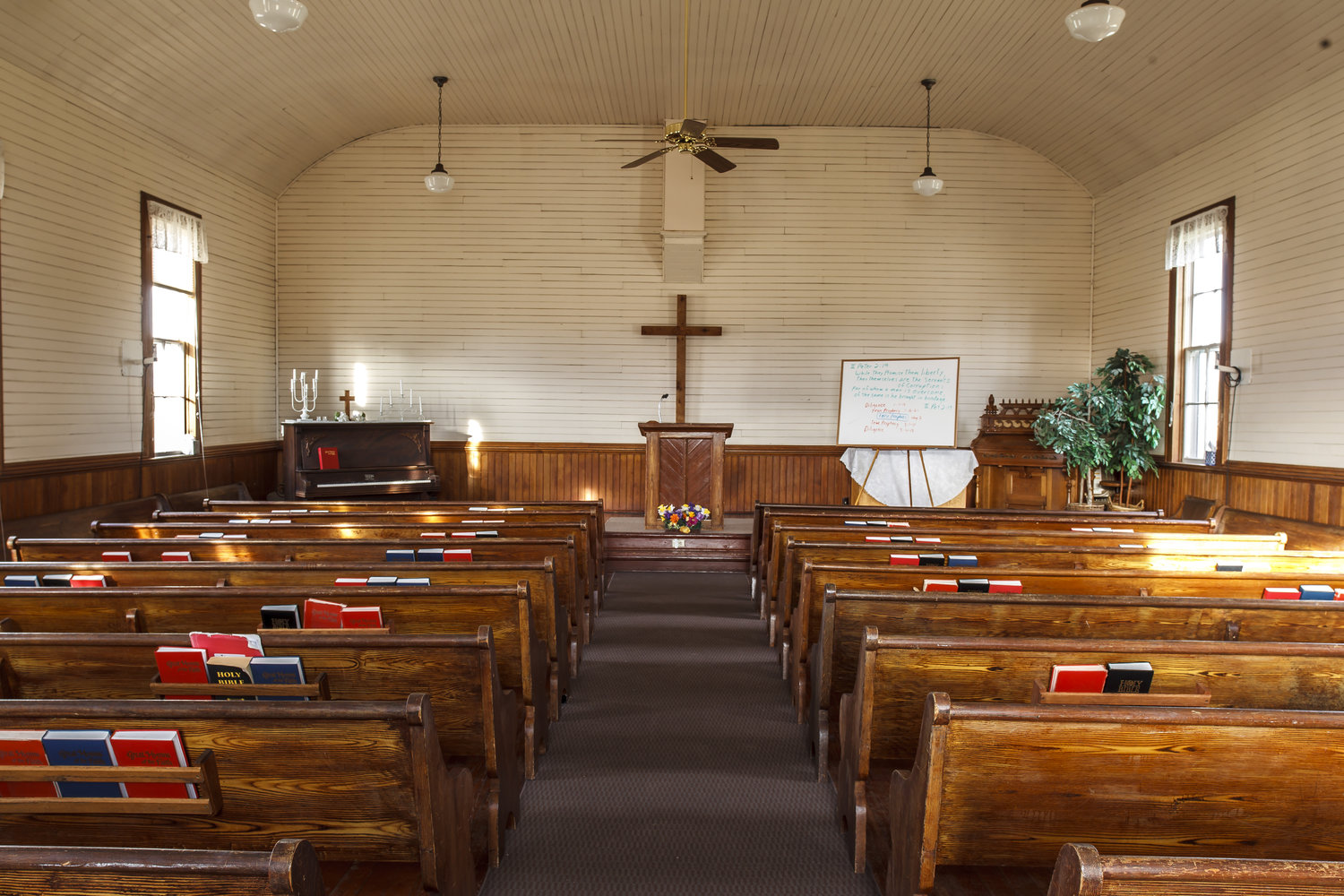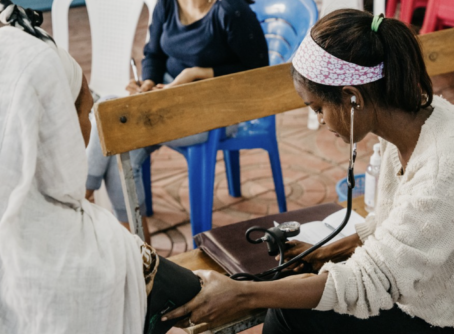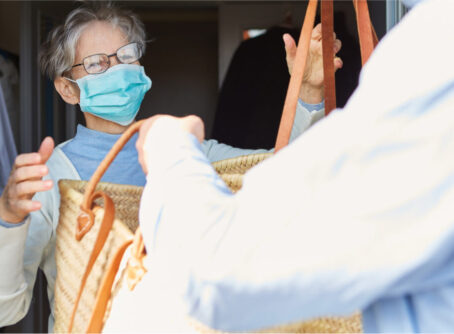
This article is part of Shared Justice’s Second Chance Month series running throughout April and May. This series will explore barriers that returning citizens face upon release from prison, highlight the ways in which government and civil society institutions can respond, and invite our readers to participate in efforts to ensure that returning citizens have the ability to flourish upon reentering society.
April is Second Chance Month, which presents an opportunity for Christians to enter into a season of prayerful reflection and embodied citizenship on the complex subject of criminal justice reform. It is important to consider the right roles and responsibilities of both faith-based organizations and government officials in pursuing justice for those who face incarceration or are returning citizens.
Healing Communities, an organization that provides a faith-based “framework for a distinct form of ministry for men and women returning from or at risk of incarceration, their families and the larger community,” held their D.C. Chapter Conference on Saturday, March 23rd, 2019, just in time for Second Chance Month. In dozens of states from Maine to California, this organization, through its chapters, provides houses of worship with the resources and support they need to become “Stations of Hope” for people within their own congregational life impacted by the criminal justice system. Healing Communities empowers congregations to transform into Stations of Hope for returning citizens and those at risk of incarceration through the following methods: spiritual support, walking alongside returning citizens on their journey to community restoration, referrals to social supports like employment and housing, guidance in rebuilding familial and community relationships, and advocacy to change the current legal structures of the criminal justice system. Healing Communities also offers technical assistance and training to faith-based organizations through subject-matter experts who educate congregations on criminal justice reform policy, learning opportunities on restorative justice models for the reintegration of returning citizens into their families and communities, and resources and networks to better equip and connect congregations.
“Our own congregations are best able to identify how we can support the needs of those in our own communities
Among participants at the Healing Communities D.C. Chapter Conference were members of New Bethel Baptist Church, Shiloh Baptist Church and Impact DMV Church. Denise Strothers, a Doctor of Ministry student at Howard Divinity School and the Healing Communities coordinator for the D.C. Chapter, said that when she first started working at Healing Communities, “I was excited about pursuing a position with Healing Communities, but little did I know how much my own church needed this ministry as soon as it was introduced. It really blessed our congregation because we had many families in our own church that were impacted by the criminal justice system. So I can speak both in my role as coordinator and in my personal voice when I say, ‘Thank God for the work of Healing Communities.’”
In addition to leaders of congregations and faith-based organizations, representatives from local government offices were also in attendance. Speakers and participants discussed the D.C. Mayor’s Office on Returning Citizen Affairs (MORCA) and emphasized the importance of collaboration with this government office in meeting the needs of those in the criminal justice system.
Dr. Dean Trulear, Founder and National Director of Healing Communities USA and Associate Professor of Applied Theology at Howard Divinity School, described a meeting several years ago between Healing Communities and a former iteration of MORCA in which the department referred to returning citizens as ex-offenders. Dr. Trulear explained that it was at that meeting that Healing Communities, from a faith-informed perspective, told the government officials why they did not believe in using the term ex-offender. “We went to them as people of faith, who identify ourselves as new creations in Christ and put our identity in Him and His salvation, rather than our past mistakes,” he said. “We said we identify those coming home from prison by the hope we have in their future, not by their past. After that, the office changed its name from including the word ‘ex-offender’ to the phrase ‘returning citizens.’”
The conference was held at Shiloh Baptist, a historic black church in northwest Washington D.C. Dr. Trulear explained that this was significant because Shiloh was the first church that Healing Communities trained in their framework:
Almost every church has a ministry dedicated to visiting and caring for those who are sick in their own church family … This makes complete sense. A pastor recognizes that he is primarily called to visit the sick in his own flock before he goes and visits sick people he doesn’t know. But this is not how most congregations think about caring for and ministering to incarcerated people and returning citizens. Often, you will have a pastor or committee at a church focused on prison ministry. They may go to the local prison and offer spiritual support to inmates that have absolutely no connection with their own churches. This is not wrong, but it is bypassing a more primary calling of caring for those in the criminal justice system that are already in the families of congregants. It does not make any sense to go out and minister to strangers in prison when there are many, many people affected by the justice system already in your own congregation. We have to start with our own church families when providing spiritual and restorative resources to people, whether they are physically sick or they are in need because they are in the criminal justice system.
Healing Communities had its genesis in 2005 as a response to projections that showed over 700,000 people coming home from prison in 2006 — at the time, the largest number of returning citizens in U.S. history. The question Dr. Trulear asked was: What is the church going to do? Since then, Healing Communities has collaborated with other faith-based organizations, including the Progressive National Baptist Convention, the General Board of Church and Society of the United Methodist Church and the D-Free Ministry to take action in response to this question.
“Healing Communities was not, first and foremost, about jobs and housing. These things are important, but they are not key,” Dr. Trulear said.“There are two things we hold as key. The first principle is [that] restoration is built on relationships and values. When returning citizens cultivate relationships and internalize their inherent worth, then the other necessities naturally come easier. The second principle is [that] churches need to minister to their own members. Our own congregations are best able to identify how we can support the needs of those in our own communities.”
RESTORATIVE JUSTICE ESSENTIAL TO PUBLIC JUSTICE
The Center for Public Justice’s Guideline on Government states, “Upholding public justice for a political community must include responsiveness to a variety of interrelated principles … [including] retributive and restorative justice, which hold for the way government punishes offenses and seeks restitution and reconciliation.” Public justice requires us, as Christian citizens, to ask: What are God’s good purposes for government? And what are God’s good purposes for groups — like families, churches and nonprofits — in which their primary purposes are not political?
Healing Communities is an incarnated example of a faith-based civil society organization living out a public justice framework in its approach to empowering those in the criminal justice system. Healing Communities works in partnership with local government entities and other non-governmental organizations wherever possible to bring about comprehensive healing and offer integrated services and resources. For example, when one participant asked during the Healing Communities DC Chapter Conference, “What does Healing Communities do to find people jobs? Aren’t jobs the most important?”, Dr. Trulear responded that employment opportunities for those coming from incarceration are very important, and that while the primary role of Healing Communities is to provide spiritual support and a framework based in the church for reintegration, Healing Communities refers returning citizens to government and other nonprofit resources to help them find work.
Healing Communities is an example of a faith-based nonprofit organization that works collaboratively with other sectors of society, including government. During Second Chance Month, it’s important to discern not only how to address barriers to successful reentry, but also who has the responsibility to address them. As Christians, we are called to seek restoration and shalom — not just in our personal relationships but in the institutions within which we live our lives. This includes our responsibilities as citizens in a political community. This month as we reflect on the barriers that returning citizens face when returning home, it’s important that we recognize and continue to uplift the important, multi-faceted contributions of faith-based organizations serving returning citizens and their families.
Chelsea Langston Bombino is the Director of the Sacred Sector, an initiative of the Center for Public Justice. Sacred Sector is a learning community for faith-based organizations and emerging leaders within the faith-based nonprofit sector to integrate and fully embody their sacred missions in every area of organizational life. If you are interested in learning more, please contact Sacred Sector Program Coordinator Virginia Creasy at virginia.creasy@cpjustice.org.





